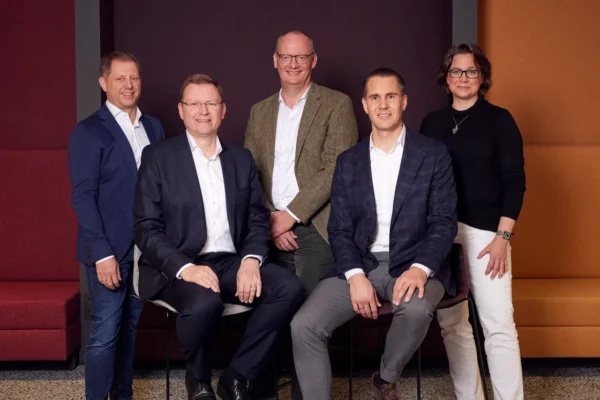Leaders in Japan’s business technology industry outline their organization’s initiatives for 2021.
Above: Takayuki Ikeda, Toshiba TEC advisor and chairman of the Japanese Business Machine and Information System Industries Association (JBMIA).
As we enter 2021, executives from the Japanese MFP industry group, JBMIA, and OEMs have stated their initiatives in response to the market changes at the end of the previous year.
JBMIA
“Looking back, last year was a year when the entire nation was required to change their behavior to prevent infection, and various proposals were made as to what behavioral patterns were appropriate,” said Takayuki Ikeda, Toshiba TEC advisor and chairman of the Japanese Business Machine and Information System Industries Association (JBMIA) which is organized by OEMs in the industry. “From the perspective of work, telework, and remote conferences, we can say that it was the year when work styles drastically changed.”
In response to workstyle transformation, JBMIA announced the following three initiatives in the end of 2020.
- Document Authenticity Platform: Its purpose is to ensure the reliability, security, and safety of document data by using advanced technologies.
- MFP Gateway Platform: This creates environments where prints and scans can be done anytime, anywhere without being restricted by the user’s work location or working hours.
- Arterial Logistics Sharing Activities: This is a mechanism in which shipments of MFPs from different OEMs are consolidated on a truck and delivered to end-users, a change from the current way each OEM loads trucks with individual orders. This is expected to contribute to logistics efficiency improvement and global warming countermeasures by reducing CO2.
Konica Minolta
“The spread of the novel coronavirus has completely changed the common sense of economic activities and social life, and our values, lifestyles, and working styles have changed significantly,” said Konica Minolta President Shoei Yamana. “Konica Minolta will contribute to the human society evolution by creating values that are truly required for the future society such as security and safety, remote and non-contact, and individualization and decentralization, and by growing our business sustainably.”
Ricoh Corp.
“The expansion of the coronavirus has changed society completely,” said Yoshinori Yamashita, president of Ricoh. “The movement of people has been restricted, along with the introduction of work from home and teleworking that has been almost forcibly progressed. Paperless has also accelerated. I assumed that such changes in work styles would progress gradually, but now see that the expansion of the coronavirus has accelerated those changes ahead of schedule. Under these circumstances, I feel the opportunity to face the questions of what contributes to a good life and contributes to a good society is necessary for all people and organizations to consider. An answer lies in our contribution to sustainable development goals (SDGs) and to these fundamental questions that the coronavirus has brought.”
Seiko Epson Corp.
“Currently, we are being helped partly by printer demand for home use, but we need to prepare to grow and evolve steadily after the novel coronavirus infection rate settles down,” said Yasunori Ogawa, president of Seiko Epson. “In order to do that, we must have a strong understanding of this crisis and the uncertain future. First, we must improve our business culture and evolve our business models. It is important to establish solid business strategies, especially to deal in areas where the market is shrinking.”
Access Related Content
Visit the www.thecannatareport.com. To become a subscriber, visit www.thecannatareport.com/register or contact cjcannata@cannatareport.com directly. Bulk subscription rates are also available.



